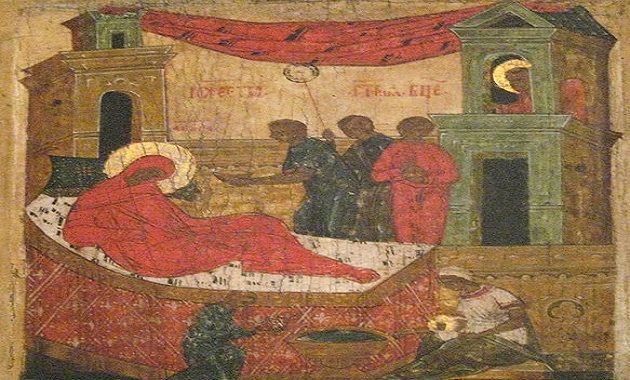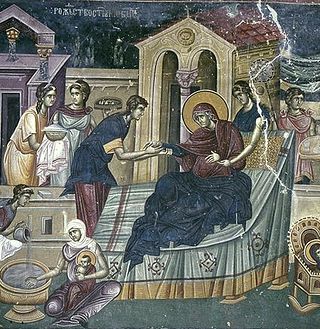Commemorated on September 8
The Most Holy Virgin Mary was born at a time, when people had reached such limits of decay of moral values, that it seemed altogether impossible to restore them. The best minds of this era were aware and often said openly, that God must needs come down into the world, so as to restore faith and not tolerate the ruination of the race of mankind. The Son of God chose for the salvation of mankind to take on human nature, and the All-Pure Virgin Mary, – alone worthy to contain in Herself and to incarnate the Source of purity and holiness, – He chose as His Mother. The Birth of Our Most Holy Lady Mother of God and Ever Virgin Mary is celebrated by the Church as a day of universal joy. Within the context of the Old and the New Testaments, on this radiant day was born the MostBlessed Virgin Mary, – having been forechosen through the ages by Divine Providence to bring about the Mystery of the Incarnation of the Word of God, and She is revealed as the Mother of the Saviour of the World, Our Lord Jesus Christ.

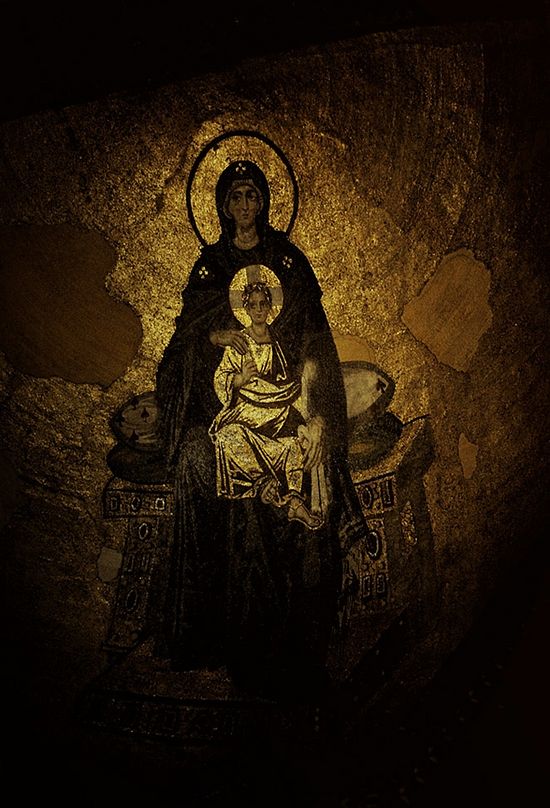
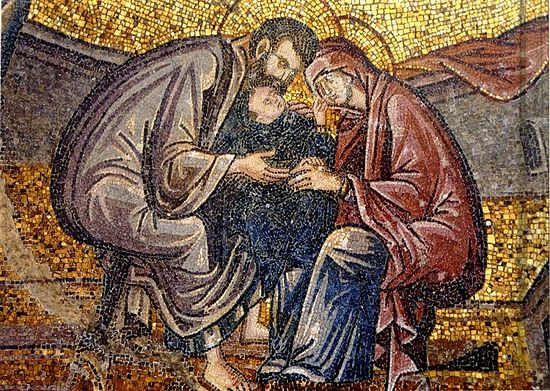


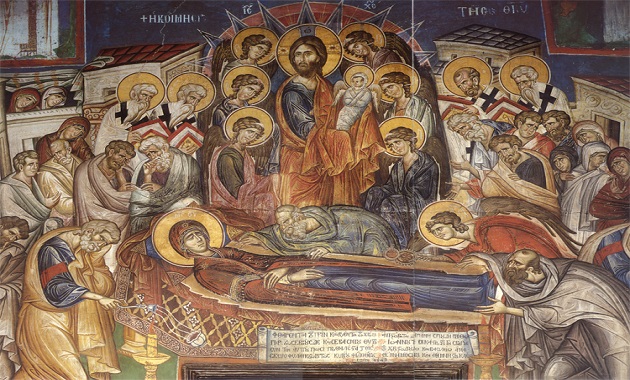
 Saint Epifanios
Saint Epifanios 